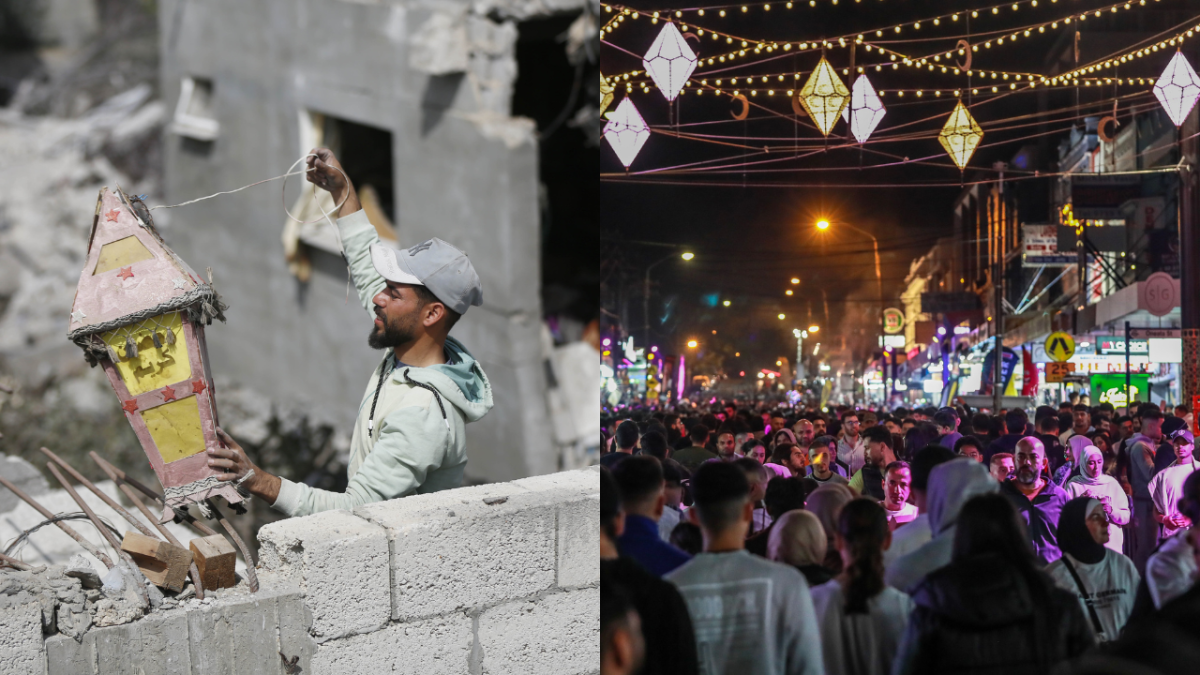
Ramadan, and Eid Al-Fitr which follows it, is my favourite time of the year.
For me, and many Muslims, it is a time of spirituality, healing, growth and love. We work on our souls and recalibrate our faith. We engage with what it means to be alive on this earth, and we look for ways we can give back — traditionally in the form of charity and feeding the hungry.
And, of course, we fast. From dawn until dusk, we consume no food or water, and we let the hunger pangs humble us, and open our hearts to others less fortunate. We remember our trials are temporary — as are we. So, every act we do should be intentional.
Right now, as a horrific “humanitarian crisis” or “famine” (read: strategic starvation) kills Palestinians who cannot reach aid because of Israel’s ceaseless attacks on civilians — and those that survive are then killed by Israeli bombs, sepsis, contaminated water, horrific wounding, dehydration — the empathy we feel for others without food is more keenly felt than ever.
As Ramadan approaches, and I prepare for a month of fasting by making sure I have nutritious food to eat in the evening, I cannot stop thinking about Muslims in Palestine (and Sudan, and Yemen, and the list goes on…) who will enter this month with no food at all. I think of the Palestinians who were massacred by Israeli forces for simply trying to get flour from aid trucks, while soon we in the west will have lavish iftars with our loved ones.
As the world watches this carnage with apathy, my heart breaks, and Ramadan takes on a new, more sombre feeling.
And I’m not the only Muslim who is left to wonder how we can celebrate such a holy month while our siblings suffer.
The events in Palestine have changed the way Aussie Muslims are approaching Ramadan
Poet and founder of Western Sydney’s Bankstown Poetry Slam Sara Mansour feels that, between watching the destruction in Gaza unfold live on our screens and the exhaustion of having to constantly argue for the humanity of Palestinians, the mood this Ramadan is “bleak and dehumanising”.
For her, this month will look “totally different”. Apart from praying for a ceasefire, she and the Bankstown Poetry Slam team will not be hosting slams as they normally do, and instead will be holding storytelling events.
She will also be avoiding Lakemba’s Ramadan night market this year — an event she hasn’t been to for a while. Like me, she’s frustrated by the gentrification of it, and the fact that it’s been co-opted by non-Muslims, but she’s also weary of taking part in such an open gorging of oneself during a time of immense suffering. It feels strange to celebrate Ramadan this way, without acknowledging how many Muslims are actually feeling about the month.
“It feels almost like a betrayal for me to be able to indulge and enjoy food in the way that I normally would during Ramadan, at a time where people are literally starving to death,” she said.
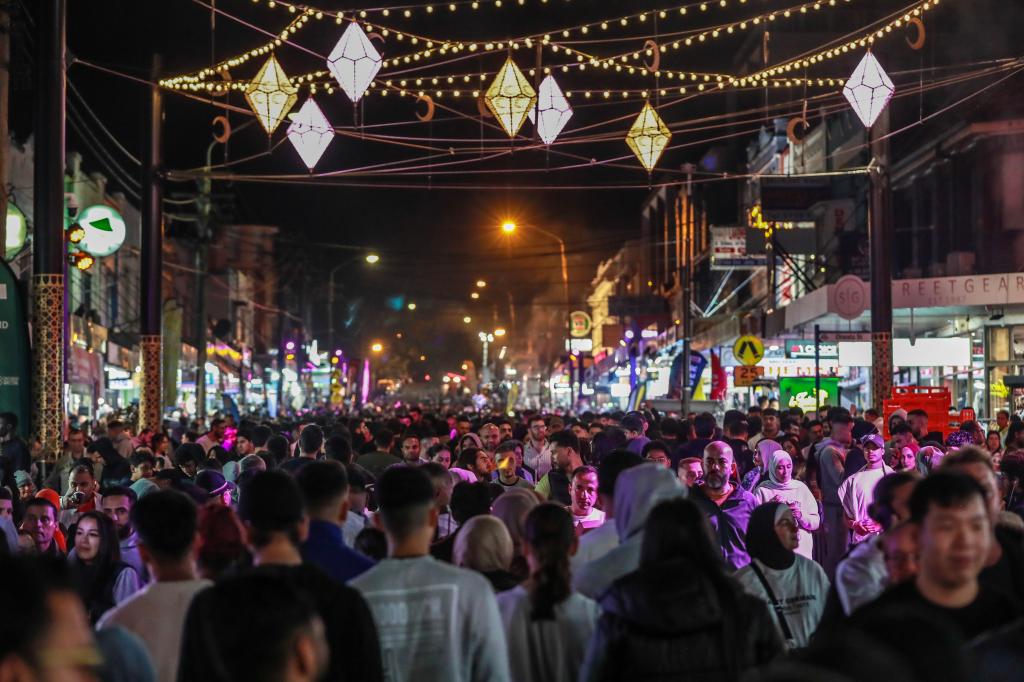
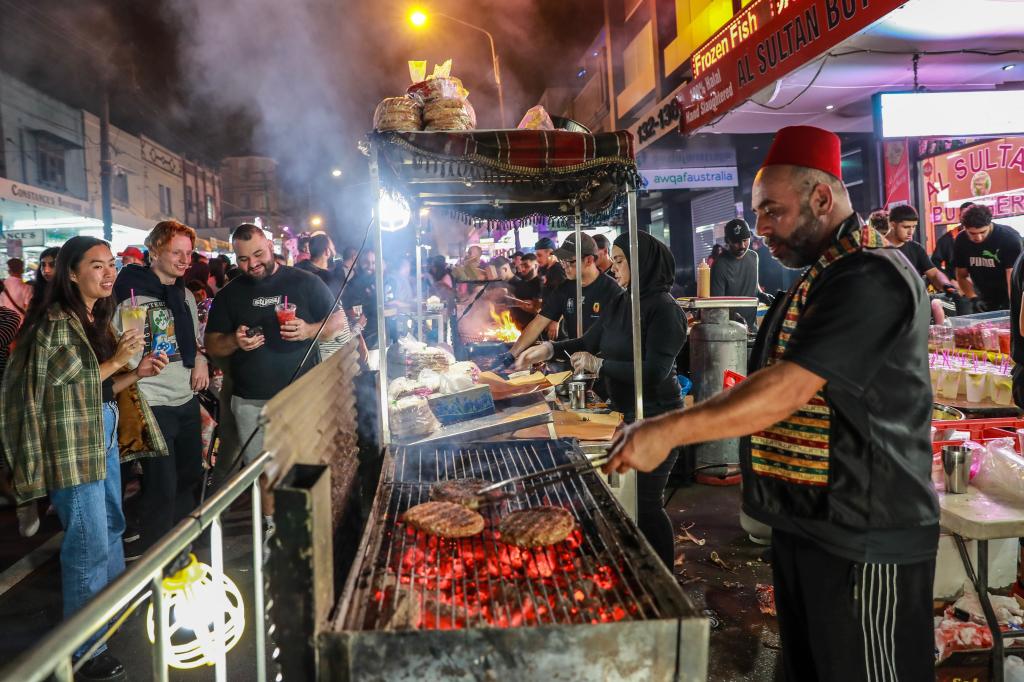
Other young people are also feeling fractured and heartbroken over the ceaseless violence.
Ibrahim Farooq, 22, said the mass starvation of Palestinians has left Ramadan feeling “bleak”.
“A main point of fasting is to understand the plight of people who are struggling, and I think Ramadan this year will open a lot of people’s eyes towards Palestine,” he said.
For Andrew Djamaan, 23, the entire situation is “shameful”, and one that weighs heavily on his heart as he thinks about fasting.
“We only feel a fraction of what [Palestinians] feel on a daily basis,” he said. “I think about this every time, especially as I’m about to eat. I’ll feel bad when I fast because our brothers and sisters over there… they will share this moment not in a home, but in a cold refugee camp.”
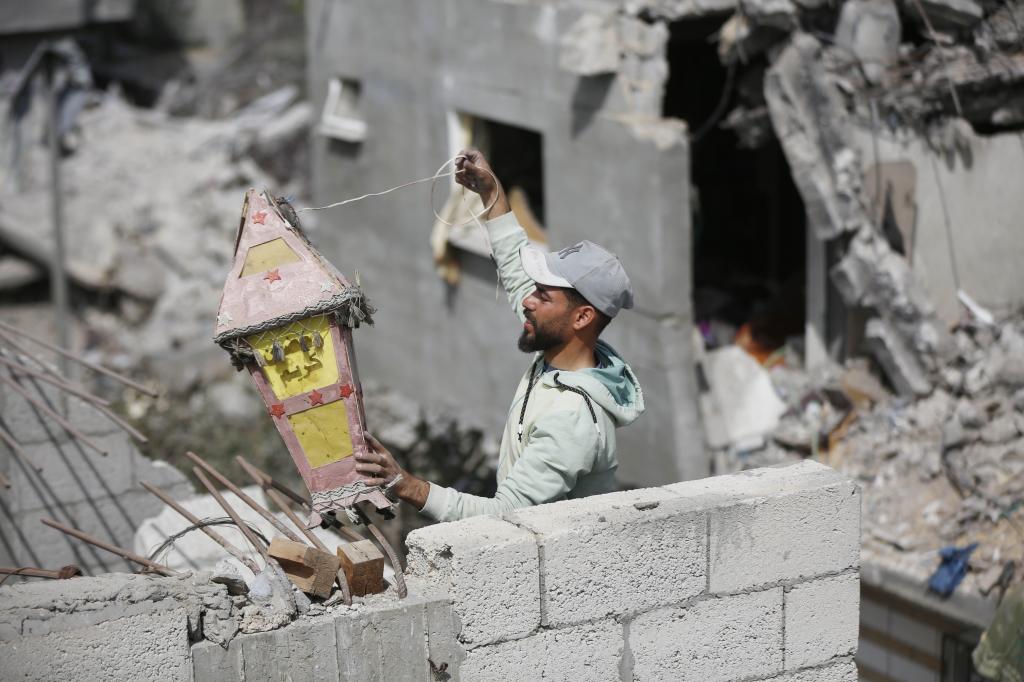
For some, engaging in Ramadan festivities is its own radical act of joy
Human rights lawyer, poet and author Sara M. Saleh, who is of Palestinian, Egyptian and Lebanese heritage, is also struggling to hold on to the light of this month while mourning her own people.
“For me, Ramadan is always such an important time to be able to recalibrate and sort of recenter that which is important. It allows you to be introspective, reflect and be really intentional about what it is that you do throughout the day,” she told PEDESTRIAN.TV.
“We’re all entering this month very drained and very exhausted and very traumatised, obviously none more than those who are on the front lines, and very scared for what we are afraid might continue to happen.
“Often we are quite concerned about our family and our friends in Palestine each year anyway, because Israel tends to escalate violence [during Ramadan], but this year is next level in terms of how we are feeling now, as we’re seeing a public slaughter on our phones.”
Normally, Saleh would look forward to the festivities that come with Ramadan — stringing lights around your home, decorating your tables with plates of dates — but that joy is hard to hold on to when things are so dire. However, she takes strength from the resilience of Palestinians in Gaza, who have been pictured decorating tents with lights for the holy month.
“My husband said to me, if the people who are in tents with no electricity, very little food, very little water, like literally horrible hygiene — if they can find a moment to pause and just have a moment of joy to put up the those lights… if they can prioritise those moments of joy and love and connection and spiritual realignment, I think we should be able to do the same thing,” she said.
“We shouldn’t let those who seek to destroy us and erase or suppress us, enact violence against us, we shouldn’t let them have every single moment of joy. We shouldn’t let them [take] the things that make life worth living.”
How Muslims are reconciling Ramadan with action
While many of us are heartbroken and exhausted, there is still joy to be found this month — if not in festivities, then in solidarity with one another.
Fatima Ayub, 23, told me the grief she feels for Palestine feels endless, but that in many ways it is also a call to action.
“I think Ramadan has come at a time where Muslims are in dire need of it, much like it always does,” she said.
“That time for introspection and reflection, the closeness to God, is a lifeline during a time so rife with grief and loss. [Processing] such complicated and hard feelings is easier, in my experience, during a time like Ramadan.
“My hope is that this time allows the Muslim community to come together and consolidate their advocacy work to ensure its impact.”
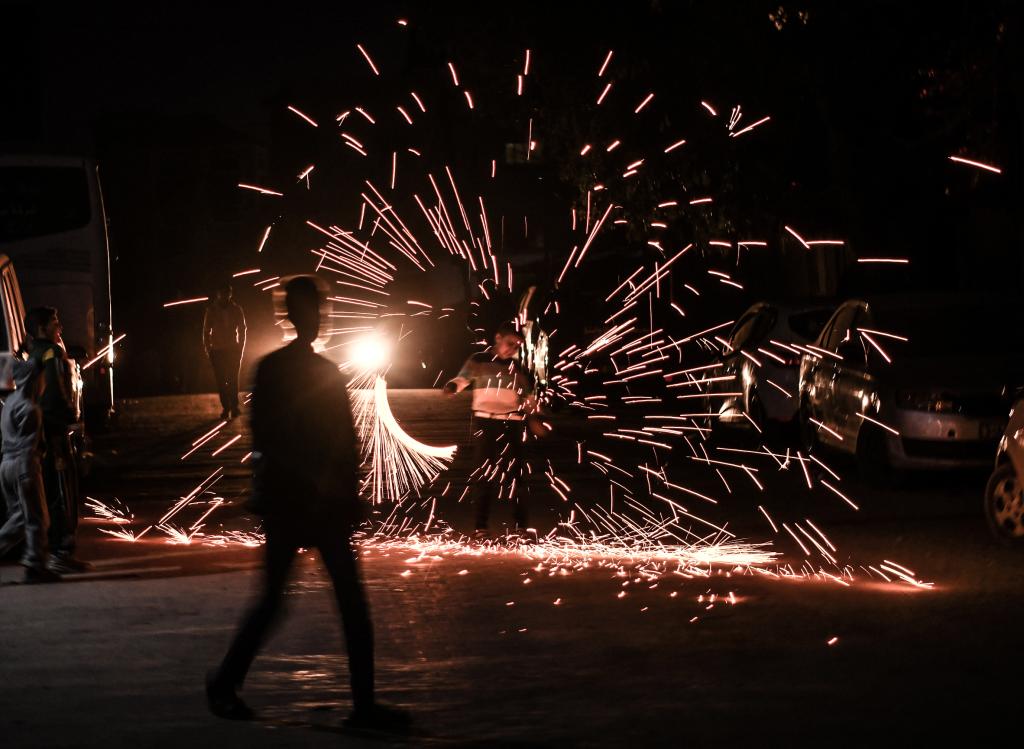
Fazilat Rafiq, 25, is someone I’ve known since childhood.
When I spoke to her about my feelings, she reminded me that this is an issue that has brought together Muslims like nothing else, and many, like her, will only further amplify their activism this Ramadan.
“This Ramadan, Palestine will be spoken about at the tables of virtually all Muslims as they break their fast,” she said.
While she fully understands that it’s “easy to feel helpless when weeks of protesting still has not resulted in a ceasefire“, she also draws strength and resilience from Palestinians themselves, who remain steadfast in their faith and celebrations despite surviving the “worst of humanity”.
For me, just another Australian Muslim who often feels paralysed with despair, her words — and the words of all the Muslims I spoke to — were invigorating.
Because while we are in mourning, we can also remember that if Palestinians can insist on joy even in the face of horror, then we can, too.



